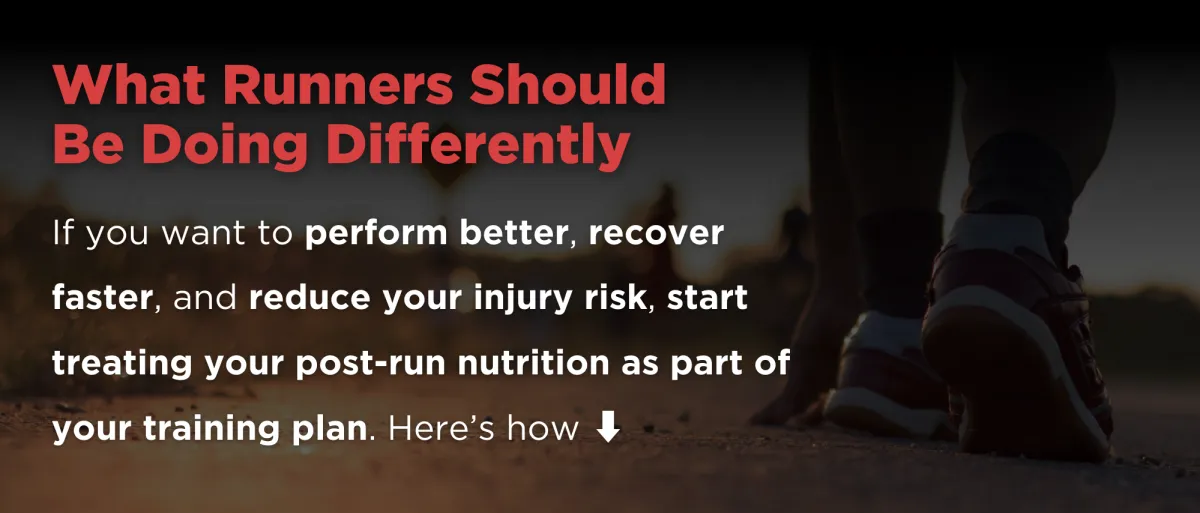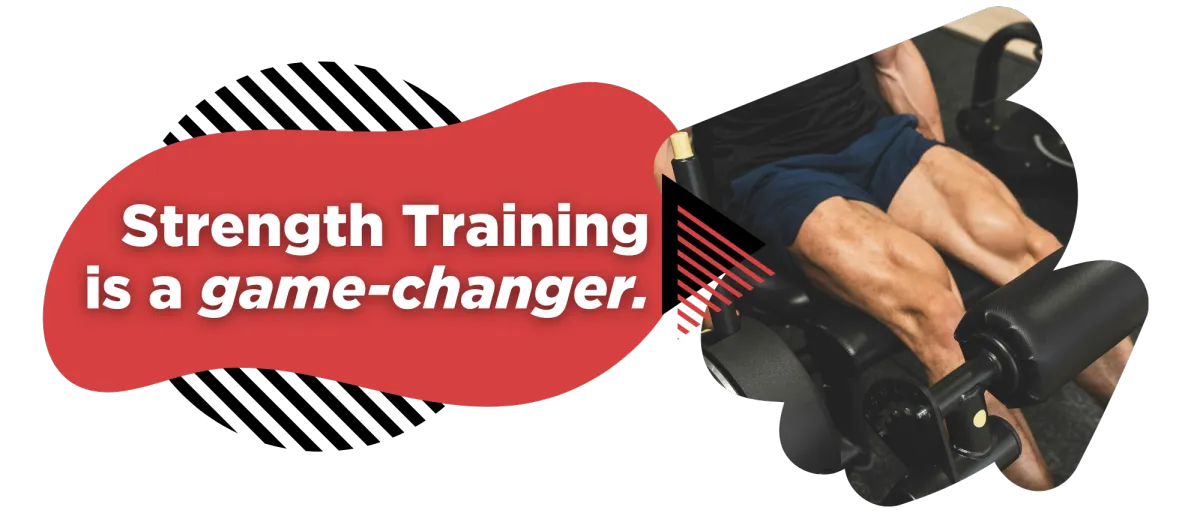Why Runners Break Down: The Truth About Fueling, Fatigue, and Injury Risk
5 MINUTE READ

We all know that fatigue is the enemy of good running mechanics. When your body is running on empty, your form breaks down, your reaction time slows, and you become more susceptible to injuries—especially overuse ones like stress fractures, tendinitis, and muscle strains.
But here’s the real kicker: even if your glycogen stores appear to be “fine,” your performance and resilience can still suffer if you don’t refuel properly.
A recent study looked at how delaying carbohydrate intake after exercise affects next-day performance. What they found could be a game-changer for runners who want to stay strong, run efficiently, and avoid the downward spiral of fatigue-induced injuries.

In the study, recreational athletes completed a high-intensity interval workout. Afterward, some refueled immediately with carbs, while others delayed their carbohydrate intake for a few hours. Both groups ended up consuming the same total amount of carbs over the next 24 hours.
So, what happened when they tested their endurance the next day?
🏃♂️ Runners who delayed carbs completed 30% fewer intervals before hitting exhaustion.
💪 They felt like they were working harder (higher RPE scores) despite having similar glycogen levels.
⚡ Their bodies didn’t recover as efficiently, even though their muscle glycogen was technically restored.
In other words, timing matters. It’s not just about “getting enough carbs” in a day—it’s about giving your body the right fuel at the right time to optimize recovery and keep you performing at your best.

Running injuries don’t happen out of nowhere. They creep in when:
You’re running with poor mechanics because you’re too fatigued to maintain good form.
You’re overloading your muscles, tendons, and joints because your body isn’t fully recovered.
You’re compensating for weaknesses caused by energy depletion and muscular fatigue.
Think about your worst runs—the ones where you felt like you were dragging yourself through each step. That’s when your risk of injury skyrockets.
When your body is properly fueled, you run smoother, recover faster, and reduce the chances of breaking down.

Eat within 30-60 minutes after your run—especially if you’re doing back-to-back training days.
Pair carbs with protein to kickstart muscle repair and glycogen replenishment.
Don’t wait until you’re starving to eat—by then, you’ve already missed the window for optimal recovery.
And here’s the big one…

When runners combine smart nutrition with a structured strength program, they build resilience, improve running economy, and reduce injury risk. But—and this is important—strength training has to be done right.
Just like your fueling strategy, a haphazard approach won’t cut it.
Want to Get Stronger Without Wasting Hours in the Gym?
At Next Level Physio, we help runners integrate strength training and injury-resistant programming into their routines—without sacrificing their running performance.
Our Runner’s Strength Program Assessment will show you exactly:
Where your weaknesses are (and how they could be leading to injury)
How to build strength efficiently (without spending hours lifting)
The best way to integrate strength work without compromising your mileage
💥 Ready to run stronger, longer, and with fewer injuries?

About the Author
Dr. Jerry Yoo is the Founder of Next Level Physio.
He has worked with runners and triathletes for over 25 years, and is a clinical running research partner with Rutgers University, Dr. Jerry is an expert at runners and lifelong athletes over 30 get back to what they love to do.
He can be reached directly at
Post Address and Mail
Email: info@nlphysio.com
Address
1055 Darrington Drive
Cary, NC 27513
Address
4000 Wake Forest Rd Suite 112, Raleigh, NC 27609
Get In Touch
Hours
Mon - Fri: 9:00 am- 6:00 pm
Sat: By Appointment (8:00 am - 12:00 nn)
Sun: Closed
Phone Number:
919-650-4633


Facebook
Instagram
X
LinkedIn
Youtube
Website